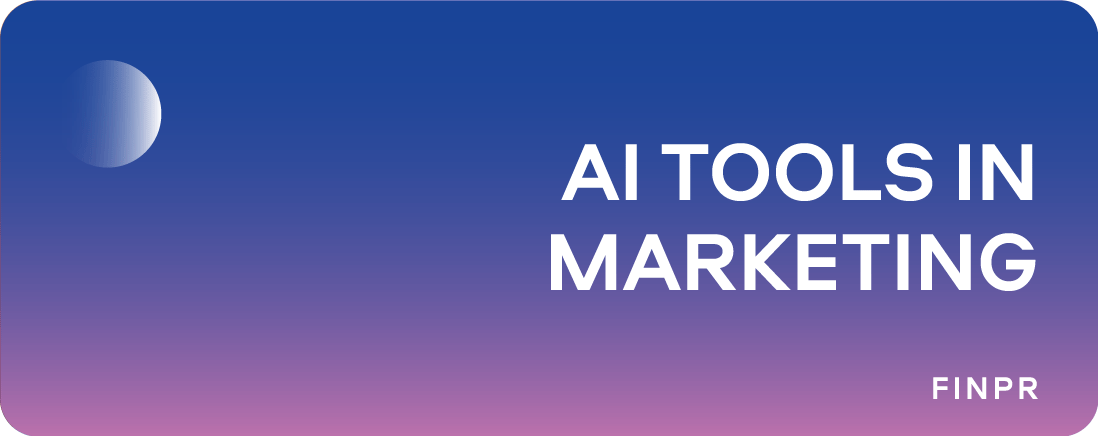
Digital marketing has undergone a significant transformation since its inception. What began as simple email campaigns and banner ads has evolved into a complex, multi-faceted discipline that leverages a wide range of technologies and strategies.
Businesses have continually sought new ways to reach and engage their audiences. Traditional marketing methods were quickly overshadowed by the precision and personalization offered by digital strategies.
Artificial Intelligence (AI) is a foundational element that is reshaping the industry. As we delve deeper into this topic, we will explore the various types of AI tools available, their applications, and how businesses can effectively leverage them to stay ahead in the competitive digital landscape.
Emergence of AI in Digital Marketing
The introduction of AI into digital marketing represents the latest and arguably the most transformative phase in its evolution. AI technologies, which include machine learning, natural language processing, and computer vision, have opened up new possibilities for understanding and engaging with consumers. By processing vast amounts of data at unprecedented speeds, AI can identify patterns and insights that human analysts might miss, enabling marketers to make more informed decisions and create more effective campaigns.
The integration of AI into digital and Web3 marketing has not only enhanced the efficiency of existing practices but also introduced entirely new paradigms. For instance, AI-driven algorithms now power personalized content recommendations, chatbots handle customer service inquiries, and predictive analytics forecast market trends and consumer behavior. These innovations have fundamentally changed how marketers approach their work, making AI an indispensable tool in the modern digital marketing arsenal.
As businesses face growing competition and higher consumer expectations, the need for precise, personalized, and timely marketing strategies has never been greater. AI offers solutions to these challenges by automating routine tasks, providing deeper insights into consumer behavior, and enabling real-time decision-making. A survey by Salesforce revealed that 51% of marketers are already using AI, with another 27% planning to incorporate it into their strategies in the near future.
The benefits of AI in digital marketing are manifold. AI:
- enhances customer experiences by delivering personalized content and recommendations
- increases operational efficiency by automating repetitive tasks
- improves decision-making through advanced data analytics
However, the integration of AI also comes with challenges, such as data privacy concerns, the need for significant technological investment, and the requirement for ongoing education and training to keep pace with rapid advancements.
13 Key AI Tools and Platforms in the Market
1. Jasper.ai
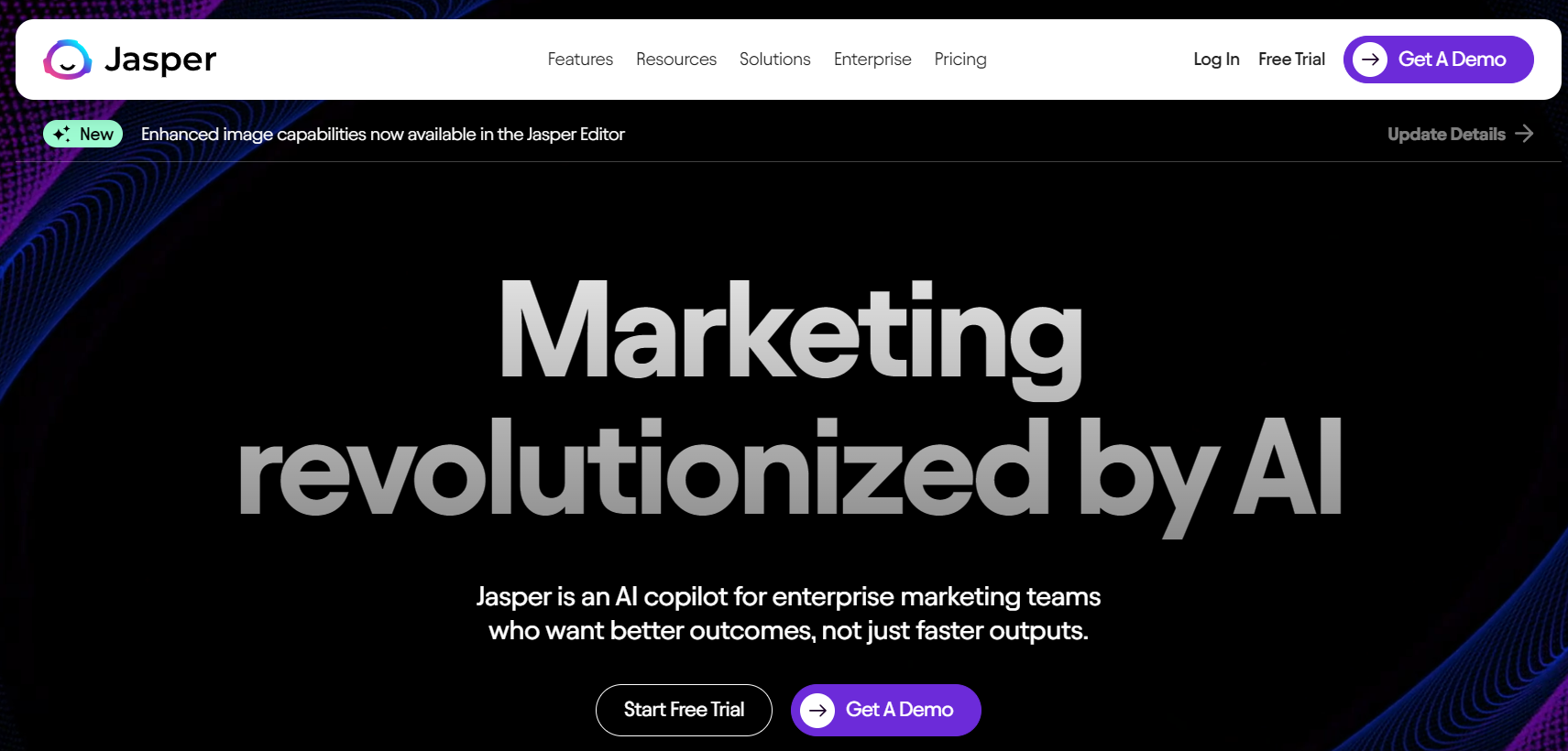
Jasper.ai is an AI-powered content creation tool designed to assist with a wide range of writing tasks, from blog posts and social media content to email campaigns and SEO optimization. Initially launched as an AI writing assistant, Jasper has evolved into a comprehensive marketing tool that supports various stages of content creation. Its AI copilot helps generate ideas, outlines, and even full drafts based on the input provided, making it a valuable asset for marketers aiming to produce high-quality content quickly and efficiently.
One of the standout features of Jasper.ai is its ability to maintain a consistent brand voice. By using the Knowledge Base, users can upload information about their brand, allowing Jasper to generate on-brand content that aligns with their marketing goals. The tool also integrates seamlessly with other applications like Google Docs, SurferSEO, and Zapier, enhancing its functionality and ease of use.
Key features:
- AI-powered content generation
- Customizable brand voice with Knowledge Base
- Integration with various applications
- Real-time collaboration and document sharing
2. Brand24
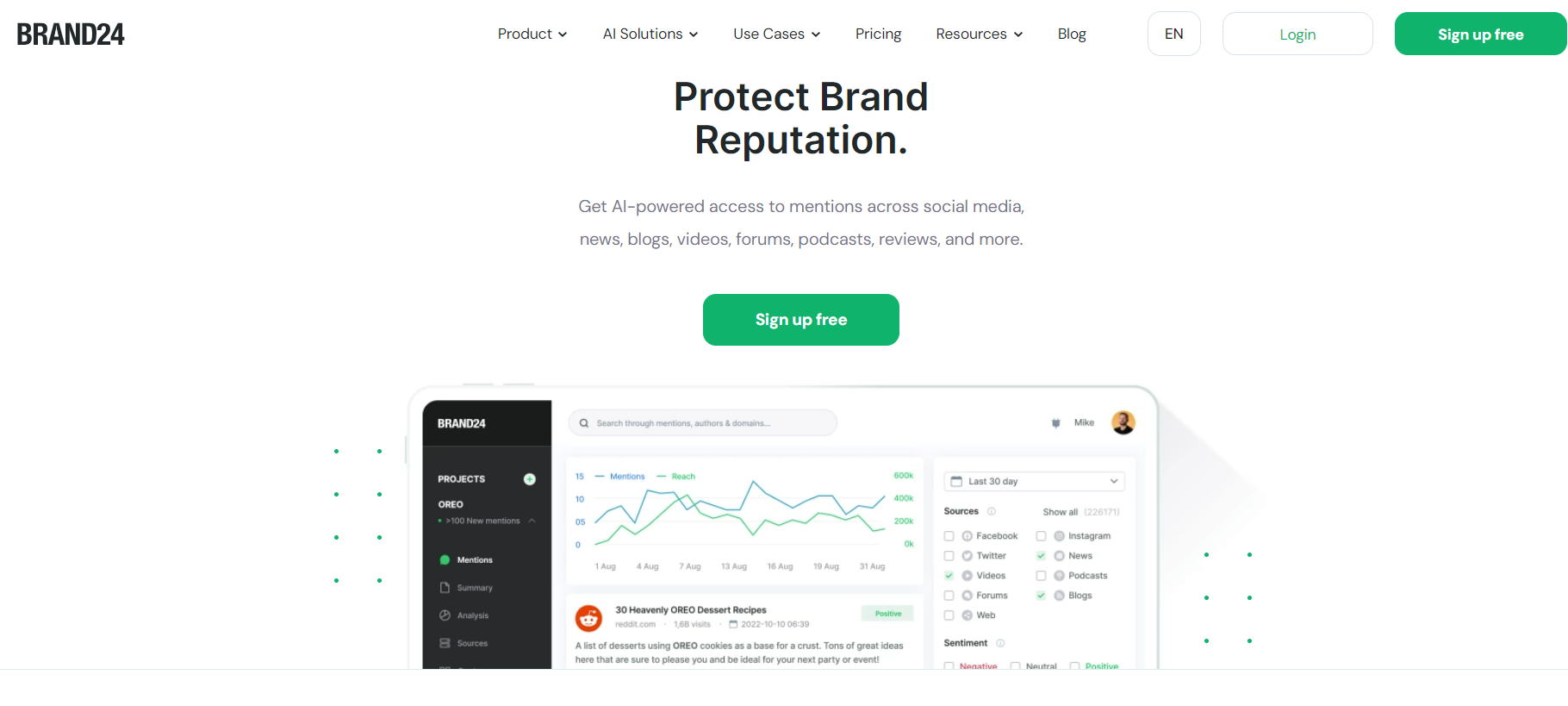
Brand24 is a social listening tool that helps businesses monitor and analyze online mentions of their brand across various platforms. This tool provides real-time insights from social media, news articles, blogs, and forums, enabling marketers to track customer sentiment and engage with their audience more effectively. By automating the process of data collection and sentiment analysis, Brand24 allows businesses to stay on top of their online reputation and respond promptly to customer feedback.
Brand24's sentiment analysis feature is particularly useful for understanding the emotional tone of brand mentions. This helps businesses address potential issues proactively and tailor their communication strategies to improve customer relationships. Additionally, the tool's influencer identification capabilities enable marketers to discover and engage with influencers who can amplify their brand's message.
Key features:
- Real-time social listening and monitoring
- Sentiment analysis of brand mentions
- Influencer identification
- Customizable alerts and notifications
- Comprehensive reporting and analytics
3. Surfer SEO
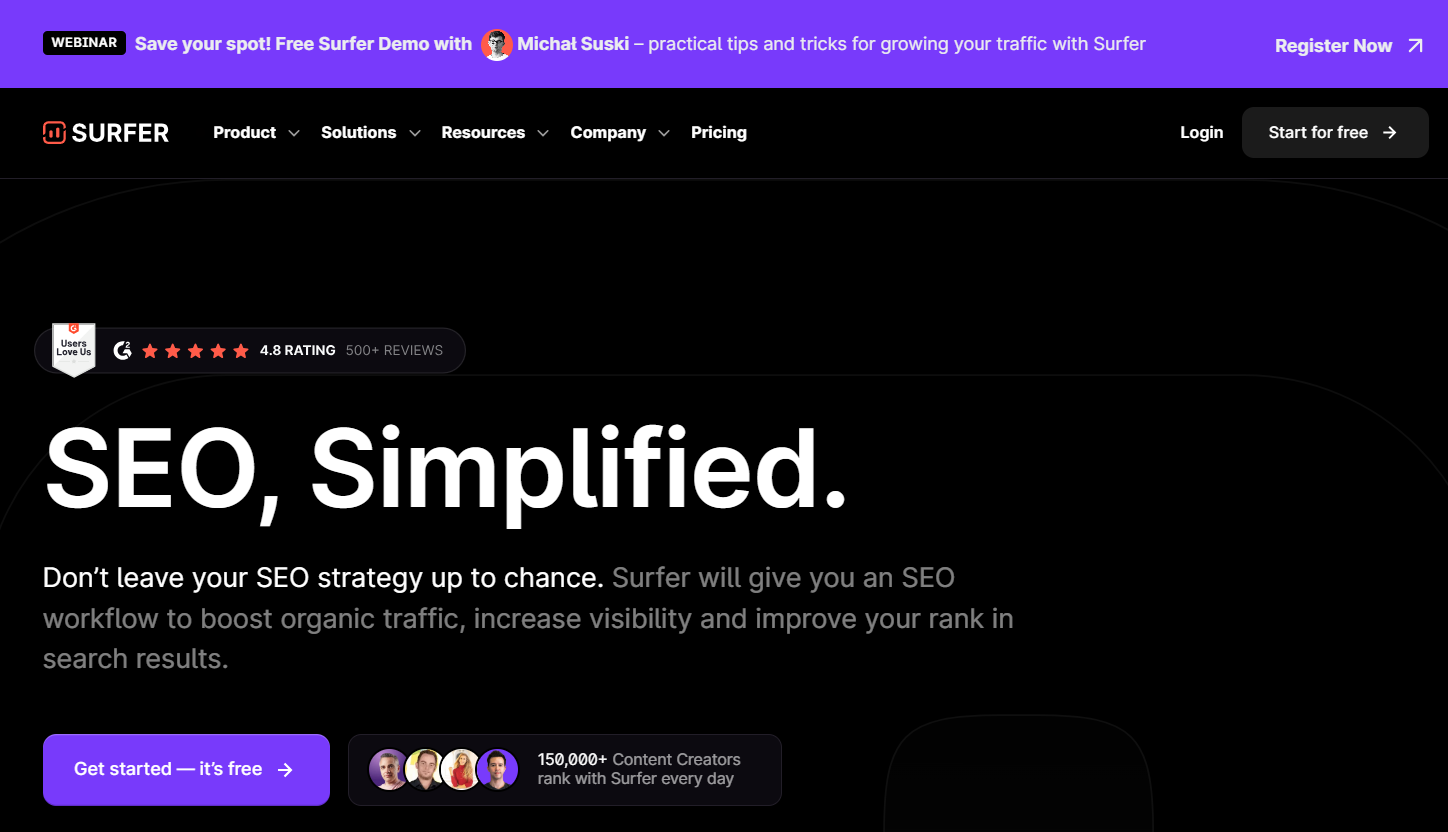
Surfer SEO is an AI-driven tool designed to help digital marketers optimize their content for search engines. By providing data-driven recommendations on keyword usage, content structure, and meta tags, Surfer SEO ensures that content meets the latest SEO standards. The tool's detailed analysis and competitor insights allow marketers to automate complex aspects of SEO, freeing up time to focus on creating high-quality content.
Surfer SEO stands out for its ability to integrate SEO best practices directly into the content creation process. It provides a clear roadmap for optimizing each piece of content, helping marketers achieve higher search engine rankings and attract more organic traffic. The tool's integration with other marketing platforms further enhances its utility and effectiveness.
Key features:
- Automated SEO recommendations
- Detailed competitor analysis
- Keyword usage and content structure suggestions
- Integration with content creation tools
- Comprehensive SEO audits and reports
4. Seventh Sense
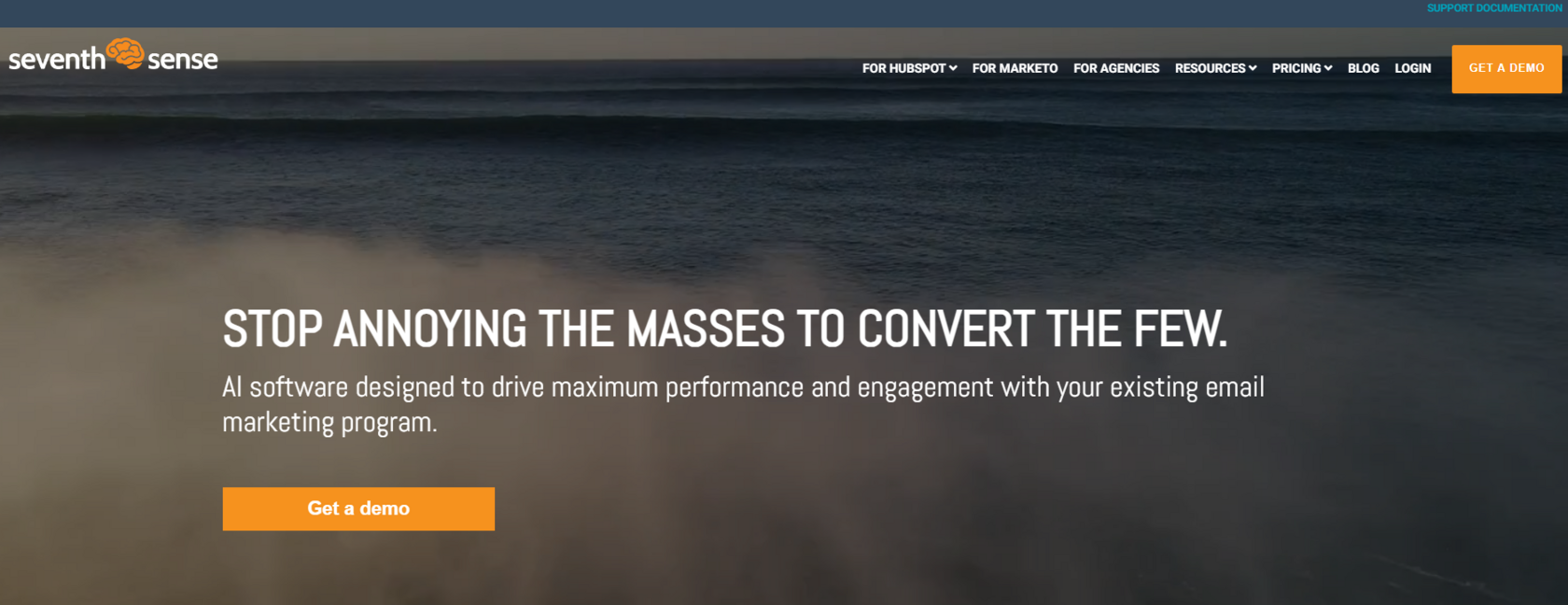
Seventh Sense is an AI-powered email optimization tool that analyzes recipient engagement patterns to determine the optimal time to send emails. By personalizing send times for each contact, Seventh Sense helps businesses increase email open rates and engagement. The tool integrates with popular marketing platforms like HubSpot and Marketo, making it a valuable addition to any email marketing strategy.
Seventh Sense's behavioral profiling capabilities ensure that emails are sent when recipients are most likely to engage with them. This leads to improved deliverability and conversion rates, enhancing the overall effectiveness of email campaigns. The tool also provides detailed analytics and reporting, helping marketers refine their strategies based on real-time data.
Key features:
- Optimal email send time determination
- Behavioral profiling of recipients
- Integration with HubSpot and Marketo
- Detailed campaign analytics and reporting
- Enhanced email deliverability and engagement
5. Whalesync
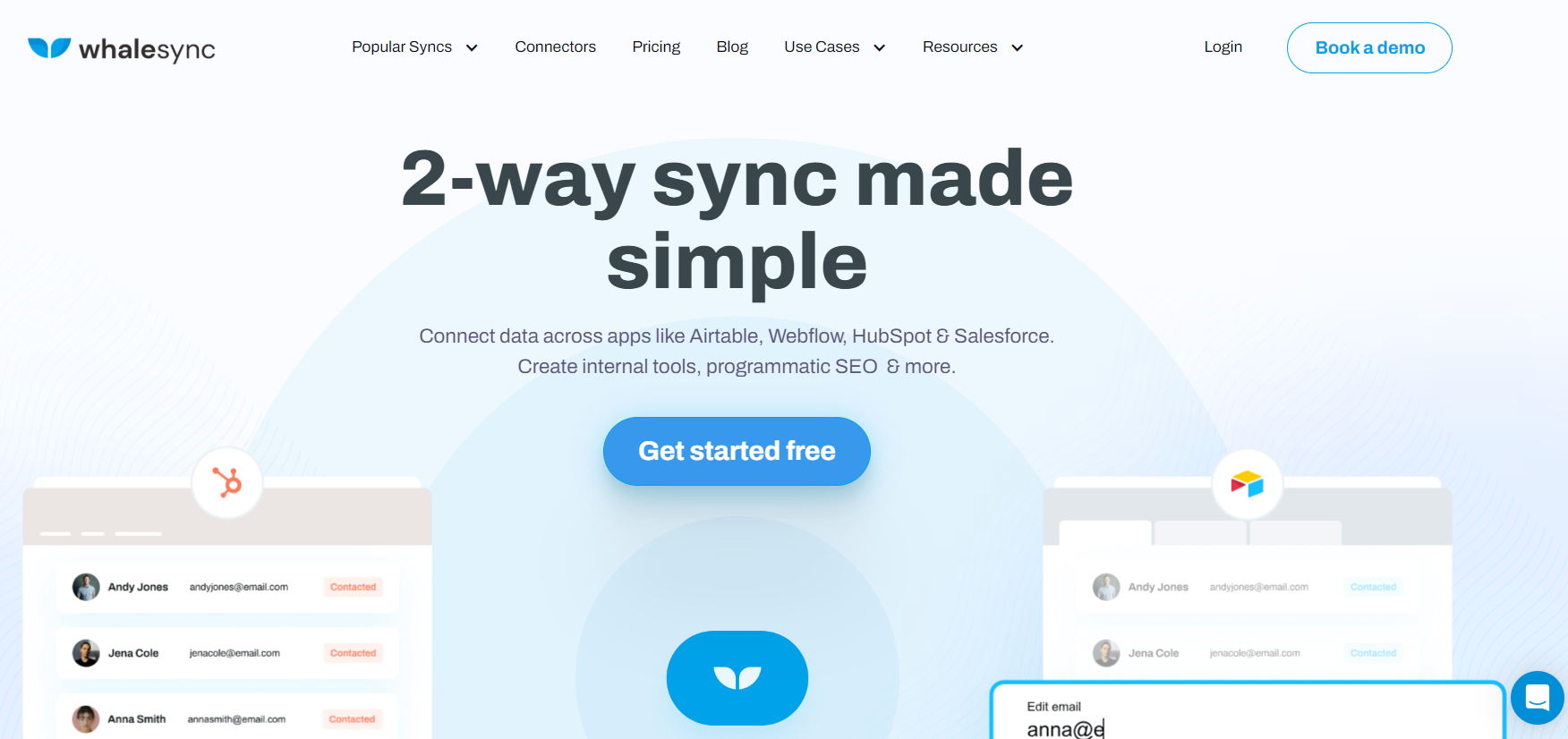
Whalesync introduces a new approach to SEO with its programmatic AI capabilities. This tool analyzes search trends, user behavior, and competitor strategies to optimize website content automatically. By leveraging AI-driven insights, Whalesync helps drive organic traffic and improve search rankings, making it an essential tool for digital marketers focused on SEO.
Whalesync simplifies keyword research and on-page SEO editing, providing actionable insights that help marketers enhance their content's visibility and effectiveness. While it offers less flexibility compared to some competitors, its powerful AI capabilities make it a valuable tool for optimizing website content.
Key features:
- Programmatic SEO optimization
- Keyword research and on-page SEO editing
- Competitor strategy analysis
6. Descript

Descript is an innovative AI-powered tool for audio and video editing, designed to streamline the creation process by allowing users to edit content through text. By transcribing audio and video files, Descript lets users make changes to the text transcript, which automatically updates the media files. This approach simplifies complex editing tasks, making it accessible even for those with limited technical skills.
Descript is particularly useful for creating marketing videos, podcasts, and internal communications. It integrates seamlessly with other apps like Zapier, enabling users to automate workflows and enhance productivity. With features such as screen recording, multi-track editing, and voice cloning, Descript offers a comprehensive solution for multimedia content creation.
Key features:
- Text-based audio and video editing
- Automatic transcription
- Seamless integration with other apps
- Screen recording and multi-track editing
- Voice cloning
7. ContentShake AI
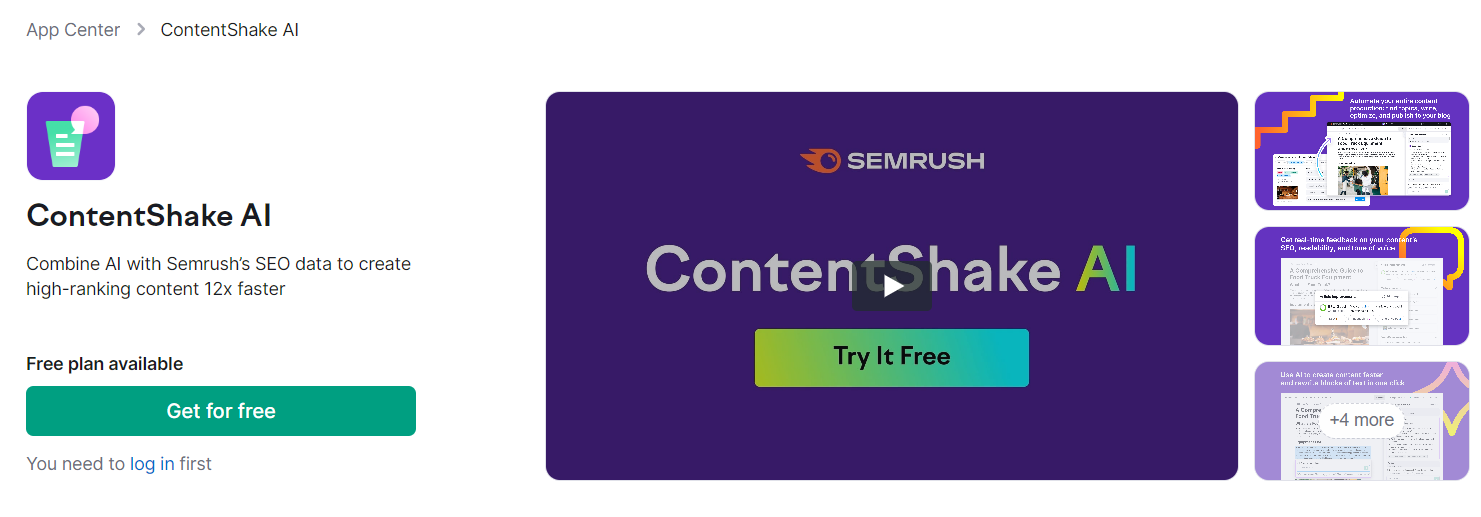
ContentShake AI, a part of Semrush's Content Marketing Toolkit, combines ChatGPT's capabilities with powerful SEO data to help marketers generate optimized content. This tool suggests data-driven content ideas and produces SEO-friendly articles with just one click. By incorporating relevant keywords and competitive insights, ContentShake AI ensures that the content is well-optimized for search engines.
Ideal for small teams, ContentShake AI allows users to quickly optimize and publish articles directly to platforms like WordPress. Its integration with Semrush’s broader suite of tools enhances the overall content creation and distribution process, making it easier for marketers to drive organic traffic and leads.
Key features:
- Data-driven content ideas
- SEO-rich article generation
- Integration with WordPress
- Competitive insights
- Easy content optimization
8. MarketMuse
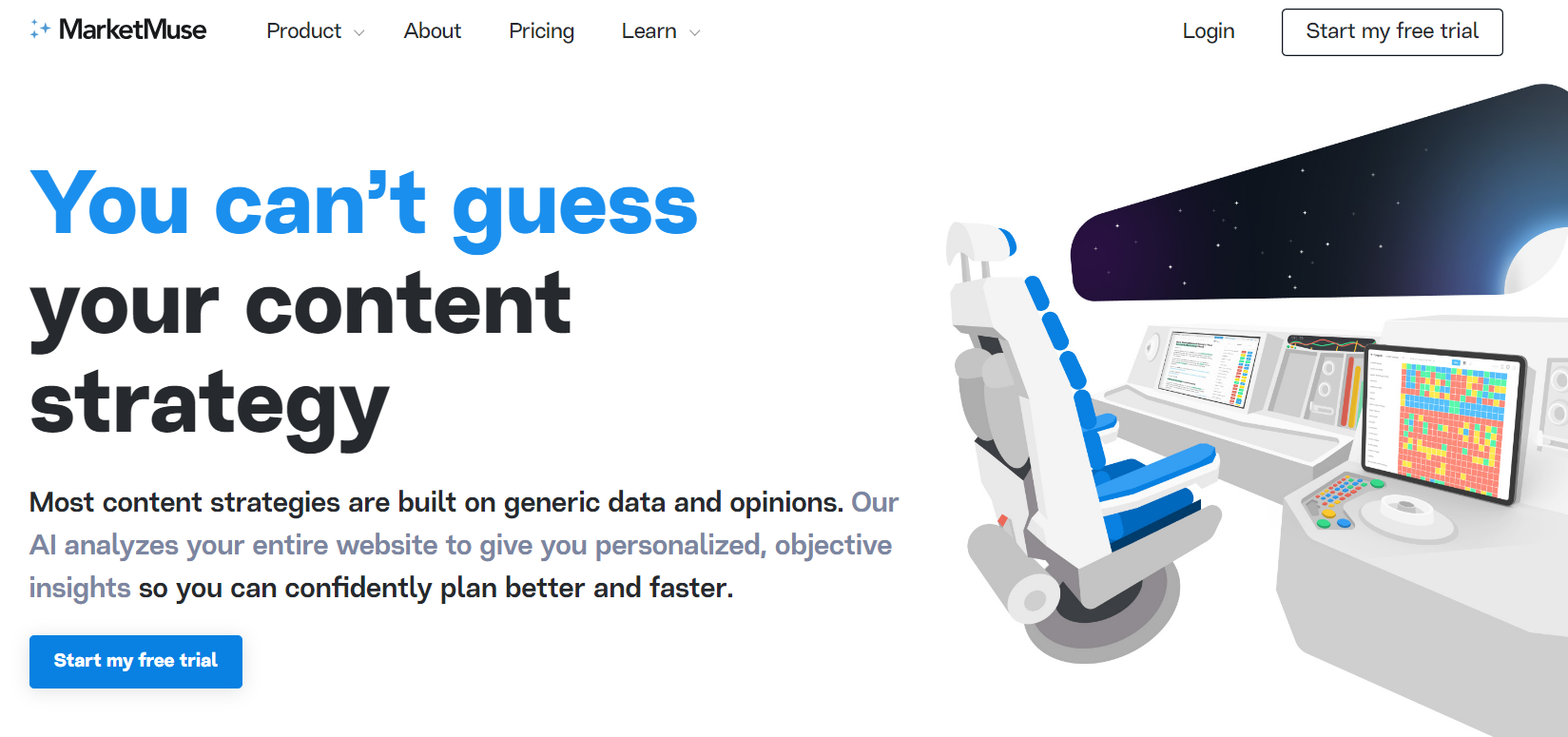
MarketMuse is an AI-driven content strategy tool that helps marketers create optimized content for various digital platforms. It performs detailed research on selected topics, identifies content gaps, and suggests relevant keywords to target for improved search engine rankings. MarketMuse's capabilities extend to generating content drafts, analyzing articles for improvements, and providing competitor insights.
By highlighting new content opportunities and prioritizing them based on their potential impact, MarketMuse enables marketers to create content that is both relevant and strategically aligned with their SEO goals. Its robust analytics and visualization tools further aid in refining content strategies.
Key features:
- Detailed topic research
- Content gap analysis
- Keyword targeting suggestions
- Competitor analysis
- Content drafts and improvement suggestions
- SERP rank tracking
9. AdCreative.ai
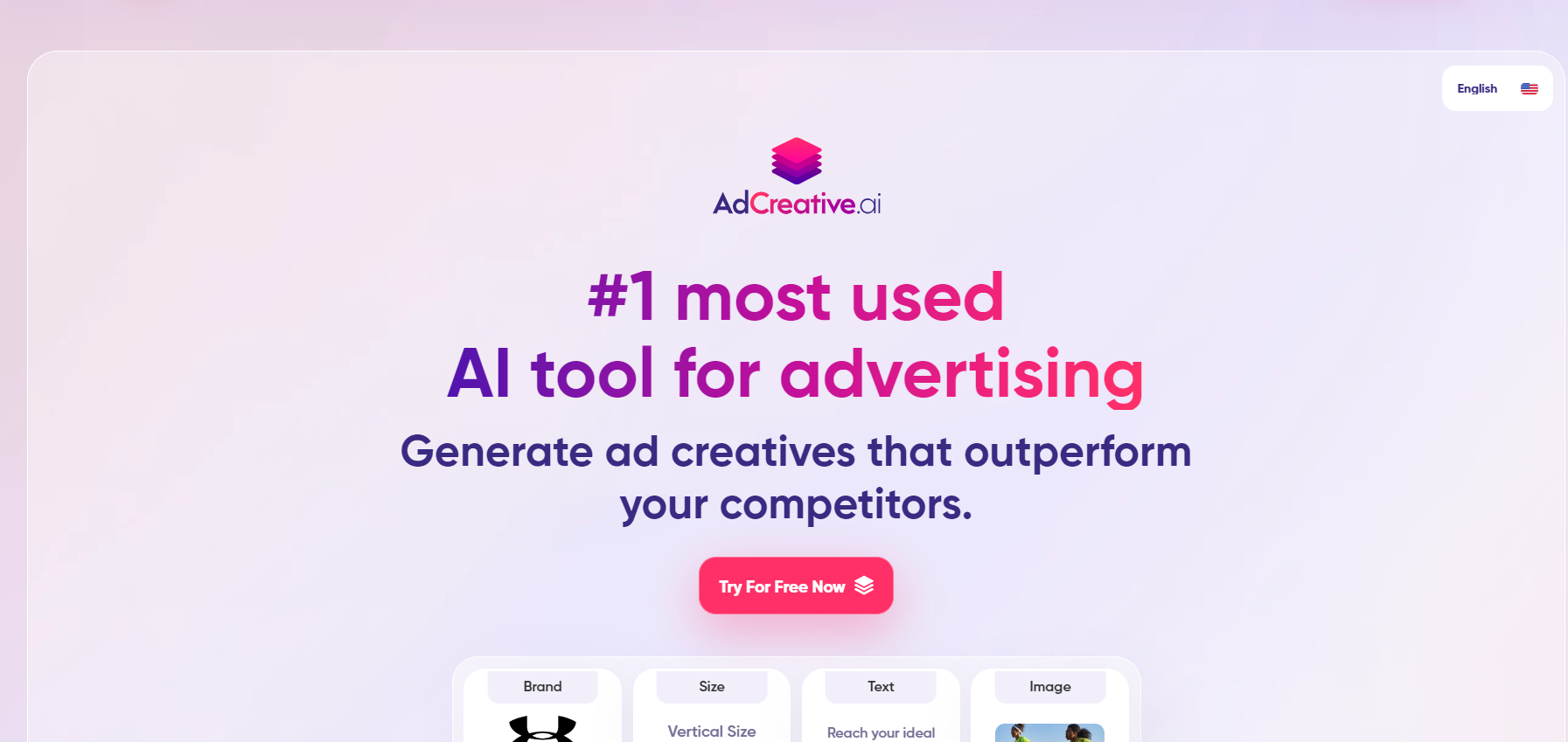
AdCreative.ai is an AI-powered tool that automates the creation of ad visuals and copy, aiming to maximize the effectiveness of marketing campaigns. This tool uses machine learning algorithms to analyze and generate multiple ad variations quickly, which can then be tested to see which performs best. This process helps marketers save time and ensures that the most effective ads are deployed, increasing the return on investment for ad campaigns.
One of the standout features of AdCreative.ai is its ability to integrate with various ad platforms like Google Ads and Facebook Ads, allowing seamless transfer of creative assets. This tool also provides analytics and insights on ad performance, helping marketers understand what works best and why, enabling continuous optimization of ad strategies.
Key features:
- Automated ad creation and optimization
- Integration with major ad platforms
- Performance analytics and insights
- A/B testing for ad variations
- User-friendly interface for quick deployment
10. Flick

Flick is a comprehensive social media marketing tool that leverages AI to optimize hashtag use and track performance metrics in real-time. It helps marketers understand which hashtags are performing well and how they can improve their reach and engagement. Flick’s analytics tools allow users to compare posts and see detailed reports on how their content is performing across various social media platforms.
Additionally, Flick’s benchmarking tool compares your performance with that of similar accounts, providing valuable insights into your market standing. This helps in strategizing content that resonates well with the audience, ultimately driving more engagement and growth.
Key features:
- Real-time hashtag performance tracking
- Detailed analytics and reporting
- Post comparison tools
- Market benchmarking
- Educational resources through Flick Academy
11. FullStory
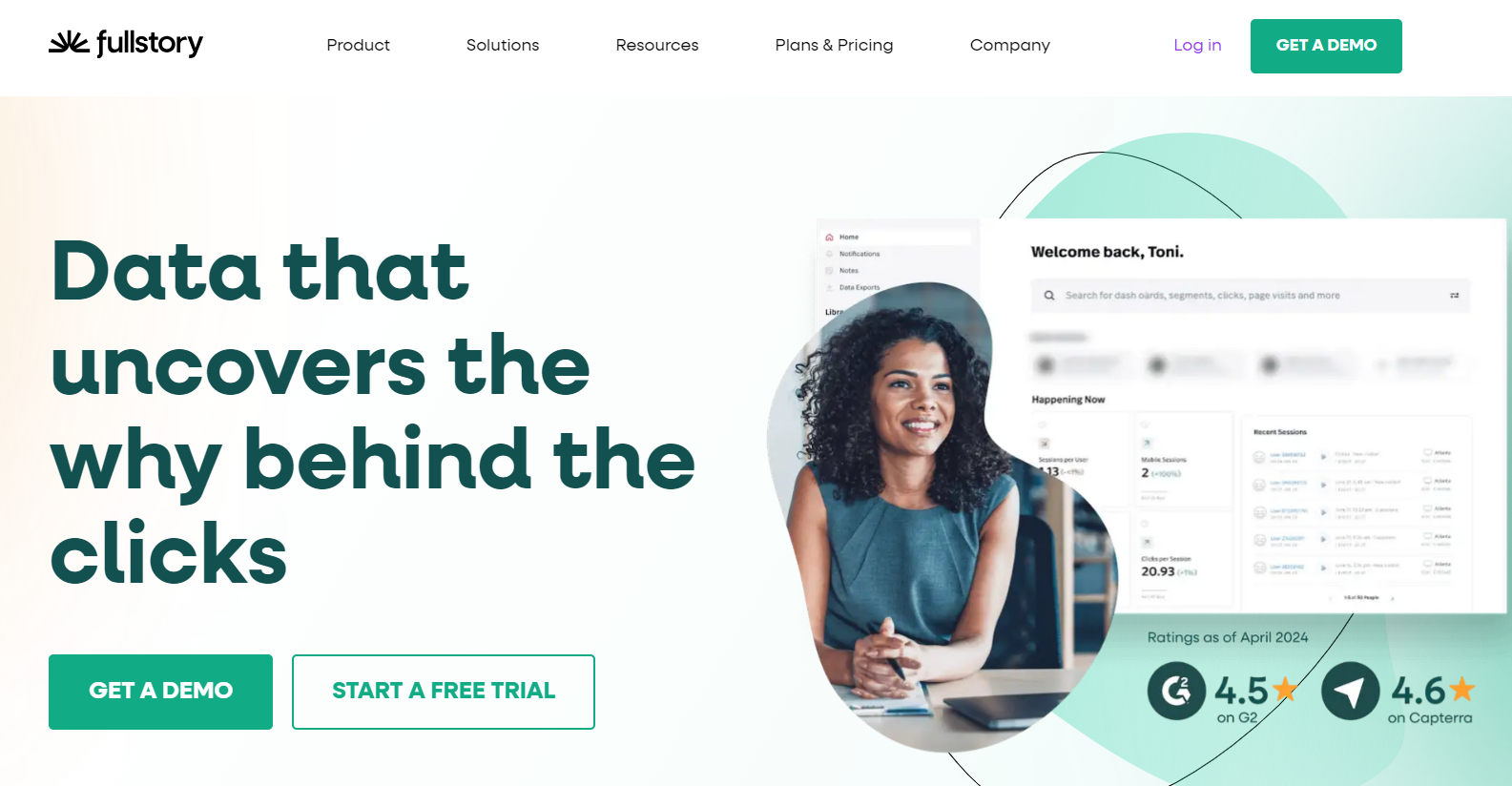
FullStory is a digital experience analytics platform that uses AI to track user interactions on websites and apps. By recording every click, scroll, and interaction, FullStory creates comprehensive "stories" of user journeys. This detailed insight helps marketers and UX designers identify pain points and opportunities for improvement, leading to better user experiences and higher conversion rates.
FullStory’s AI capabilities allow it to analyze vast amounts of data quickly, spotting trends and issues that might be missed by human analysts. This makes it an invaluable tool for optimizing websites and digital products to meet user needs effectively.
Key features:
- Comprehensive user journey tracking
- Detailed interaction analysis
- AI-driven insights and trend detection
- Integration with various web and mobile platforms
- Real-time analytics for immediate action
12. Ocoya
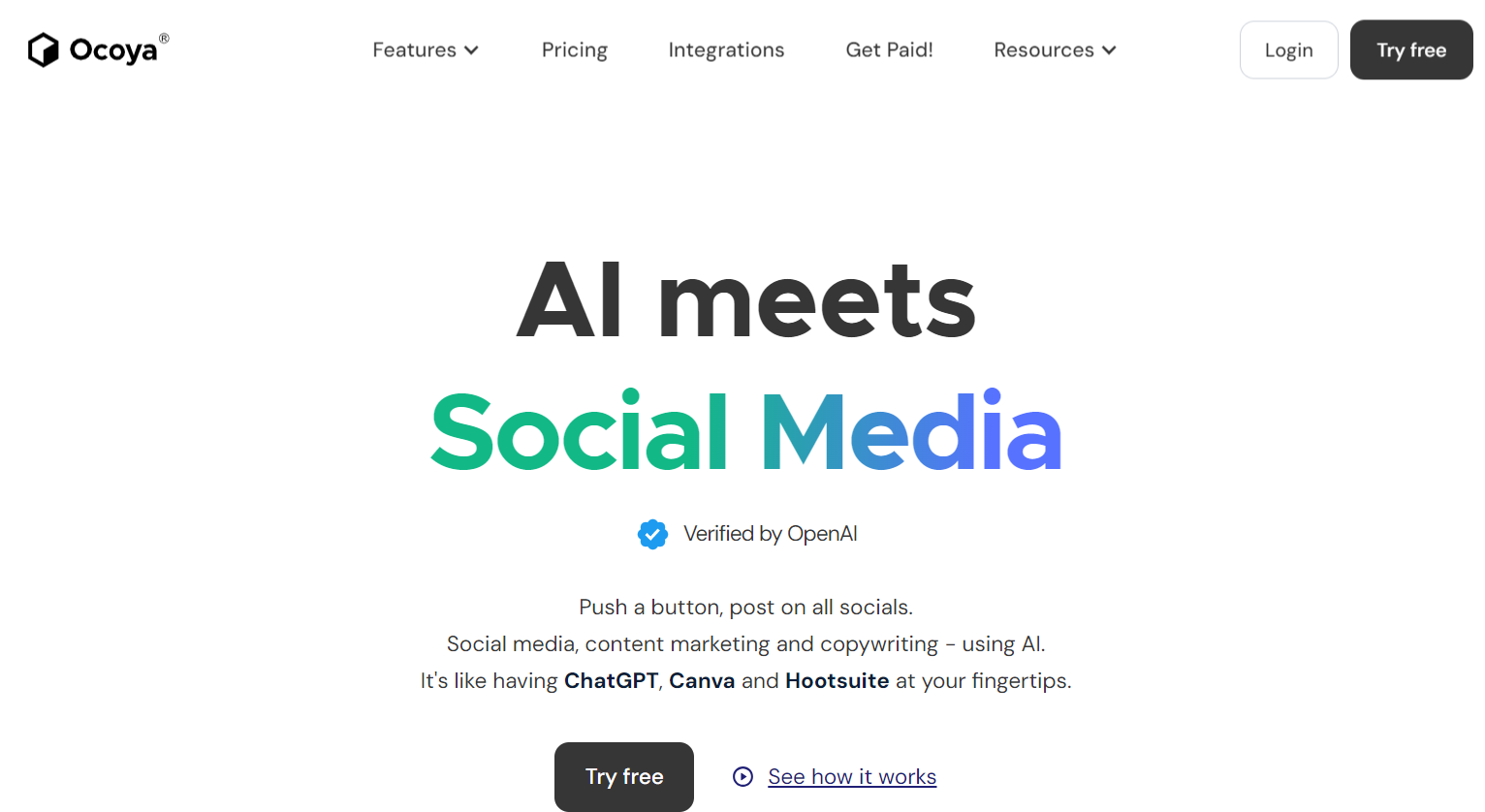
Ocoya is an AI-powered social media management tool designed to streamline content creation and scheduling. This tool offers a comprehensive solution for social media marketers by combining a visual post creator, an AI writing assistant, and scheduling capabilities within a single platform. With Ocoya, marketers can create visually appealing social media posts, generate engaging captions, and schedule their content across multiple platforms, all from one dashboard.
What sets Ocoya apart is its extensive library of templates and its ability to integrate with e-commerce platforms. This makes it easier for businesses to create marketing assets that drive engagement and sales. Despite some initial challenges with integration speed for platforms like TikTok and YouTube, Ocoya has addressed these issues, making it a robust tool for social media marketing.
Key features:
- AI-driven content creation
- Extensive template library
- Cross-platform scheduling
- E-commerce platform integration
- User-friendly interface
13. SmartWriter.ai
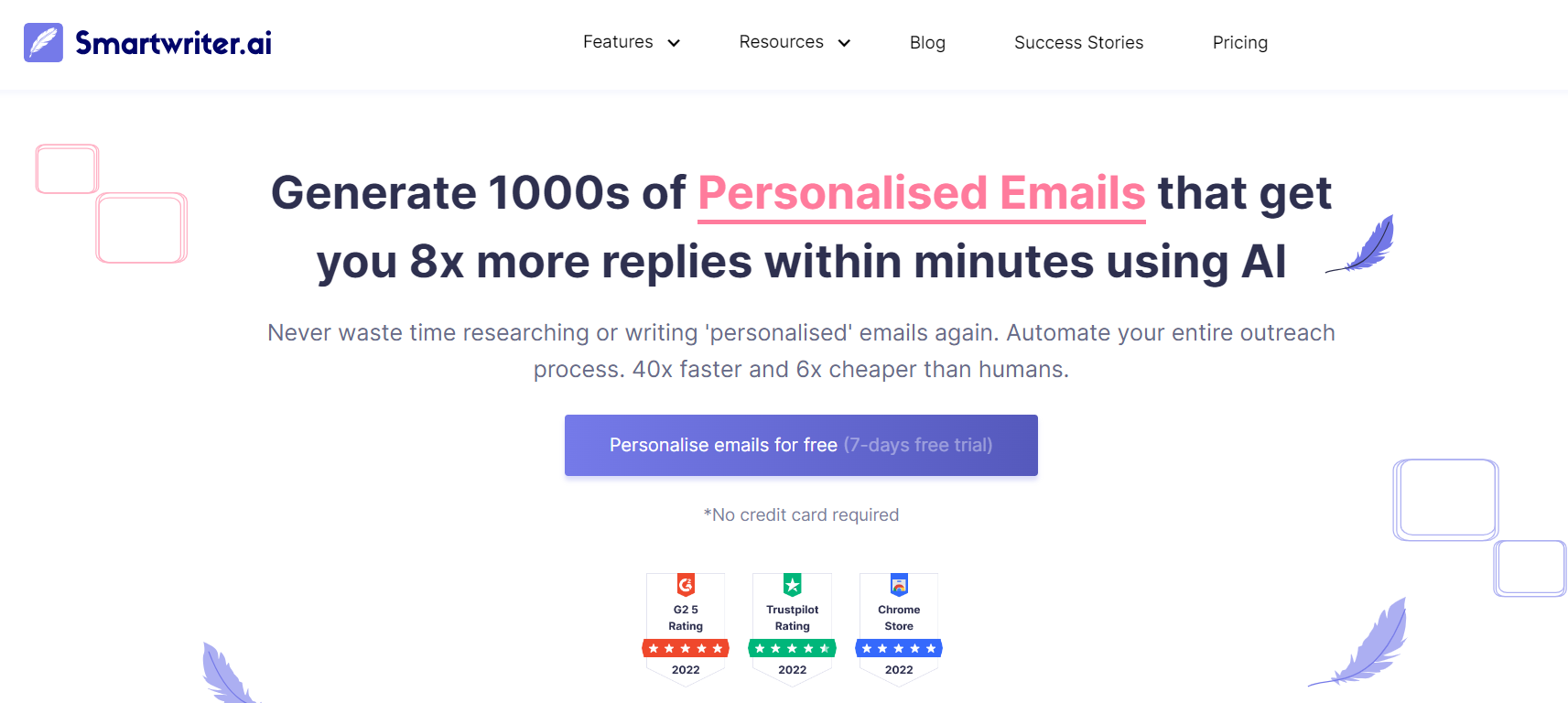
SmartWriter.ai is an advanced email marketing optimization tool that uses machine learning to craft personalized email content. By analyzing customer preferences and behaviors, SmartWriter.ai recommends the most compelling email content to increase open rates, click-through rates, and conversions. This tool simplifies the process of creating effective email campaigns, making it a valuable asset for digital marketers focused on email marketing.
SmartWriter.ai excels in enhancing the effectiveness of email marketing campaigns through its personalized content recommendations. However, it lacks API functionality, which could streamline processes further. Despite this, it remains a powerful tool for marketers looking to improve their email marketing performance.
Key features:
- Personalized email content recommendations
- Machine learning analysis of customer preferences
- Enhanced email campaign performance
- Easy-to-use interface
How AI Differs from Traditional Marketing Tools
Data Processing and Analysis
One of the most significant differences between AI marketing & AI PR tools and traditional marketing tools lies in their data processing and analysis capabilities. Traditional tools often rely on manual data collection and analysis, which can be time-consuming and prone to human error. These tools typically analyze data in a linear fashion, focusing on historical trends to inform future strategies.
In contrast, AI tools leverage advanced algorithms and machine learning techniques to process vast amounts of data at incredible speeds. They can analyze multiple data sources simultaneously, identify complex patterns, and provide insights in real-time. This allows marketers to make data-driven decisions more quickly and accurately. AI's ability to handle big data means it can incorporate more variables into its analysis, leading to more nuanced and comprehensive insights.
Personalization and Customer Experience
Traditional marketing tools often use broad demographic data to segment audiences and deliver generalized messages. While effective to a certain extent, this approach can miss the mark in addressing individual customer needs and preferences. Personalization, in this context, is limited and often based on guesswork rather than precise data.
AI tools, on the other hand, excel in delivering highly personalized experiences. By analyzing user behavior, preferences, and engagement across various touchpoints, AI can create detailed customer profiles. These profiles enable marketers to tailor content, recommendations, and offers to each individual, significantly enhancing the customer experience. AI-driven personalization can dynamically adjust in real-time, ensuring that each interaction is relevant and engaging.
Automation and Efficiency
Traditional marketing involves numerous manual tasks, such as content creation, email marketing, and social media management. These tasks are often repetitive and time-consuming, requiring significant human effort and coordination. This manual approach can limit scalability and efficiency, especially for larger campaigns.
AI transforms these processes through automation. For example, AI-powered content creation tools can generate high-quality text, images, and videos with minimal human intervention. Automated email marketing systems can send personalized messages based on user behavior triggers. Social media management tools can schedule posts, analyze engagement, and even respond to comments autonomously. This automation not only saves time but also ensures consistency and accuracy, allowing marketers to focus on strategy and creativity.
Real-Time Adaptation
Traditional marketing tools generally operate on fixed schedules and predefined strategies. Once a campaign is launched, making adjustments can be slow and cumbersome, often requiring significant manual intervention.
AI tools, however, thrive on real-time adaptation. They continuously monitor campaign performance and user interactions, making instant adjustments to optimize results. For example, an AI-powered advertising platform can automatically adjust bids and placements based on real-time performance data, ensuring that ad spend is optimized for maximum ROI. This agility allows marketers to respond quickly to changing market conditions and consumer behavior, enhancing the overall effectiveness of their campaigns.
Behavioral Analysis
Traditional marketing often relies on surface-level data, such as demographic information and basic engagement metrics. While useful, this data provides only a limited view of the customer.
AI enhances customer understanding through deep behavioral analysis. By examining how customers interact with websites, apps, and other digital platforms, AI can uncover hidden patterns and preferences. This granular insight helps marketers understand not just who their customers are, but how they think and behave. This deeper understanding enables the creation of more targeted and effective marketing strategies.
Implementing AI Tools in Digital Marketing Strategies
Integration with Existing Systems
Ensuring Compatibility and Smooth Integration
Integrating AI tools into your existing marketing stack can be complex, requiring careful planning and execution. Start by evaluating the compatibility of potential AI tools with your current systems and platforms. Ensure that the tools can seamlessly integrate with your customer relationship management (CRM) system, email marketing platform, content management system (CMS), and other essential technologies. Compatibility is key to leveraging the full potential of AI without disrupting your existing workflows.
Work closely with your IT department or a trusted technology partner to develop a comprehensive integration plan. This plan should include a detailed timeline, roles and responsibilities, and contingency measures to address any issues that arise during the implementation process.
Data Migration and Management Considerations
Effective AI tools rely on access to high-quality data. Therefore, a critical aspect of integration is ensuring that data from various sources is consolidated, cleaned, and prepared for use by AI algorithms. This process may involve migrating data from legacy systems to a centralized data repository or cloud-based platform. Implement robust data management practices to maintain data accuracy, security, and privacy, particularly in compliance with regulations such as GDPR or CCPA.
Training and Adoption
Staff Training and Development
Successful implementation of AI tools requires more than just technical integration; it also depends on the adoption and proficiency of your marketing team. Invest in comprehensive training programs to equip your staff with the necessary skills to use AI tools effectively. This training should cover both the technical aspects of the tools and their strategic applications in digital marketing.
Provide ongoing support and resources to help your team stay updated with the latest developments in AI technology. Encourage a culture of continuous learning and experimentation, allowing your team to explore new features and innovative use cases for AI tools.
Encouraging Adoption and Addressing Resistance
Adopting new technologies can often meet with resistance from employees who are accustomed to existing processes. To foster a smooth transition, communicate the benefits of AI tools clearly and demonstrate how they can enhance the team’s productivity and job satisfaction. Highlight success stories and quick wins to build confidence and enthusiasm among your staff.
Involve key stakeholders in the decision-making process and gather feedback to address concerns and suggestions. This inclusive approach can help mitigate resistance and foster a sense of ownership and commitment to the new tools.
Measuring ROI and Effectiveness
Key Performance Indicators (KPIs) for AI Tools
To evaluate the success of AI tools in your digital marketing strategy, it’s essential to establish clear KPIs. These indicators should align with your initial objectives and provide measurable outcomes that reflect the impact of AI integration. Common KPIs might include:
- Conversion rates: Measure the increase in conversions resulting from personalized marketing efforts.
- Customer engagement: Track metrics such as click-through rates, time spent on site, and social media interactions.
- Cost efficiency: Assess the reduction in marketing spend due to optimized ad targeting and automation.
- Customer satisfaction: Use surveys and sentiment analysis to gauge improvements in customer experience.
Methods for Evaluating Success and Making Improvements
Regularly review and analyze the performance data to determine the effectiveness of your AI tools. Use A/B testing and other experimental methods to compare the performance of AI-driven campaigns with traditional approaches. This iterative process allows you to refine and optimize your strategy over time.
Collect qualitative feedback from your team and customers to gain insights into the practical impact of AI tools. This feedback can highlight areas for improvement and inform future enhancements to your AI-driven marketing initiatives.
Wrap Up
AI is not just a passing trend. It is a foundational technology that will continue to shape the future of digital marketing. Businesses that proactively adopt AI tools will be better positioned to capitalize on emerging opportunities and navigate the challenges of an increasingly complex digital landscape.
To maximize the potential of AI in digital marketing, businesses should:
- Stay Updated: Keep abreast of the latest developments in AI technology and digital marketing trends. Attend industry conferences, participate in webinars, and subscribe to relevant publications.
- Experiment and Innovate: Don’t be afraid to experiment with new AI tools and techniques. Encourage your team to test innovative approaches and learn from the outcomes.
- Collaborate with Experts: Consider partnering with AI specialists and technology providers to gain deeper insights and access cutting-edge solutions.
- Focus on Ethics and Privacy: Ensure that your use of AI respects data privacy regulations and ethical standards. Build trust with your customers by being transparent about how you use AI to enhance their experiences.
By approaching AI implementation and connecting with AI marketing companies thoughtfully and strategically, businesses can unlock new levels of efficiency, personalization, and insight, ultimately driving better business outcomes and achieving sustained success in the digital age.




